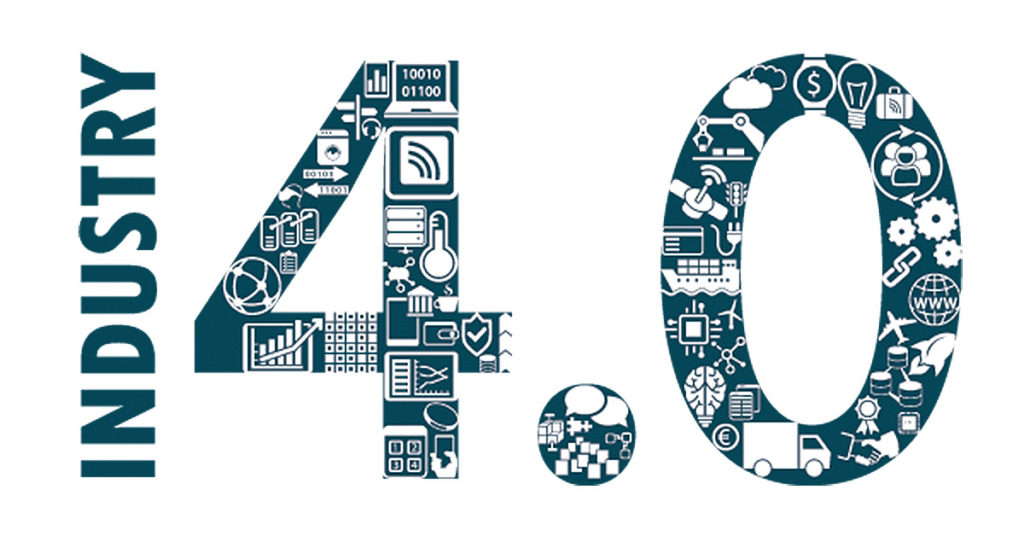, setting out on its maiden voyage. Captain Smith was given several warnings regarding the danger of icebergs which he chose to ignore. We can use this analogy today, where business leaders are in the same situation, being given warnings that a dramatic impact will alter the sailing of their business vessel. The next 4 years will see businesses being affected by major shifts in these turbulent times where awareness will be critical for companies to avoid being blindsided by change.
What is the 4th Industrial Revolution?
The 3rd industrial revolution started in the middle of the last century with the age of digitization. Building on this is the 4th revolution where digital platforms are no longer in isolated silos but rather a bleeding of technology between different mediums. The physical environment bought us autonomous vehicles and 3d printing which connected to the digital world. The digital space highlighted the Internet of Things where physical products are tied to the internet either via sensors or directly. We have virtual reality, augmented reality and the sharing economy like Uber and AirBnB. A recent article made known that Uber is sharing data with 4Square, a perfect example of entities built in isolation now meshed together for the benefit of both. This sharing of resources is in essence creating a perfect storm.
The World Economic Forum held a recent conference titled “Mastering the 4th Industrial Revolution” bought about by people in the tech industry raising the alarm, similar to that of other ships around the Titanic, that businesses need to ready themselves for a major technological disruption. An example of this in the field of Artificial Intelligence is the creation of Amelia who is designed to work in a call centre environment. In its first month it was able to assist 1 out of 10 calls, in the second month 6 of the 10 calls. Now it is close to achieving 100% successful assistance of incoming calls. This means 200 million people working in call centre environments across the world are likely to be replaced.
Siri, the Apple AI is ano
ther powerful example. Its creator has also released Viv, designed to fulfill a personal assistant function. The sounding of the alarm that the convergences of these technologies are causing a disruptive force across the world, is self evident. The World Economic Forum also placed the displacement of jobs under discussion. Administrative work will see a big change in the next 4 years where a possible 7 million people stand to lose their work within this field.
What is the impact on business?
The World Economic Forum identified a future skills shortage in business based on data analytics and data science. The reason for this being that the technology revolution is allowing businesses to generate large amounts of data by means of digitization. If efficiently analysed, it will allow leaders to make better business decisions, thus the requirement for skills to do this.
Most companies already make use of an element of technology within business, this is set to escalate dramatically, not only as technology functions but with regards the product itself. Take the mobile device as example, fully connected with amazing functionality from humble beginnings of making a call. Every product, a chair, cup or fridge will be able to connect to the internet directly and via processes. Imagine the magnitude of this shift?
It is becoming clear that certain core competencies will be required in companies to survive this technological shift.
5 Points every organisation should seriously consider
- As a result of data being collected via digitization there is call for a focus on how companies can clearly see themselves as a result of the data. It is similar to the 2MP cameras previously available, where a zoom in to get a better view of a picture would cause blurring. Now we have better cameras that allow us to zoom without losing focus on the picture, just like the depth of data would allow us now. The question is how to exploit this data for the best view.
- Companies will need to set a default assumption – there will be a deep digital disruption and it will happen to all industries.
- Start brainstorming what could happen to your physical product as a result of digitization, what will this new business model look like? How can sensors be used to gather data?
- Consider the core competency of data analysis as highlighted by the World Economic Forum. Companies will be able to employ people anywhere in the world to fulfill this task, as geographic location will no longer be a stumbling block.
- Plan for instability. Leadership must accept that change is something that is going to be with us for a considerable time, going forward.
These 5 considerations will dramatically assist an organisation to get their heads around technological shifts and how to stay relevant in a time of massive disruptions. Companies must find a way to plot their course in this disruptive technological landscape.

